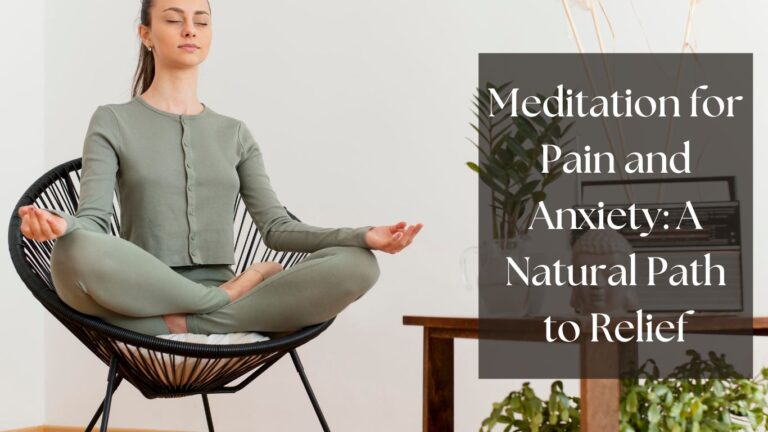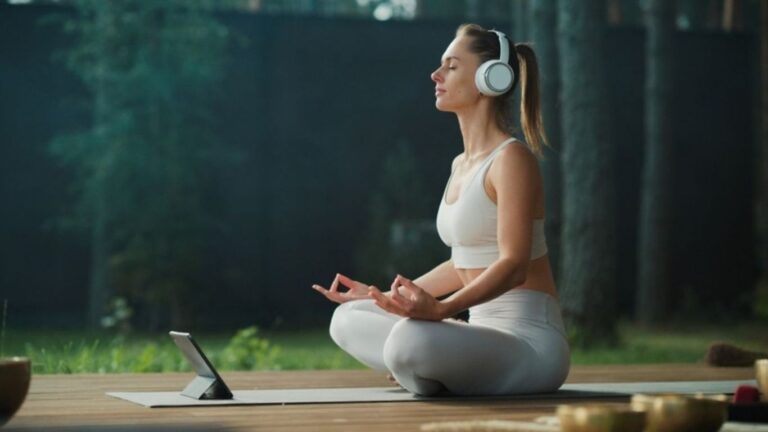Mental Exercises for Managing Anxiety and Depression | Tips & Techniques
Hey there! Let’s dive into something that affects a lot of our mental health. If you’ve ever felt anxious or down in the dumps, you’re not alone. Anxiety and depression, while often intertwined, can hit hard and make life feel a bit overwhelming. But what if I told you that mental exercises could be your secret weapon in battling these foes? In this article, we’ll explore effective techniques that can help you manage those pesky feelings, allowing you to reclaim some peace.
Anxiety and Depression
Common Symptoms
Before we jump into the exercises, it’s important to recognize the symptoms of anxiety and depression. Anxiety might make you feel jittery, constantly worried, or even physically sick. On the flip side, depression can leave you feeling empty, disengaged, or hopeless. These feelings can drain your energy and make everyday tasks feel Herculean.
Triggers and Causes
You might be wondering, “What exactly triggers these feelings?” Triggers can vary widely from stressful work situations to personal challenges. It’s a cocktail of emotions that can differ from person to person. Understanding what triggers your anxiety or depression is crucial in tackling it head-on.
The Role of Mental Exercises
What Are Mental Exercises?
Now, you may be thinking, “What are these mental exercises you speak of?” Well, mental exercises are activities that stimulate your mind and help you shift your focus from negative thoughts. They can be as simple as breathing techniques or a bit more involved, like structured meditation sessions.
How They Help
These exercises work wonders by creating positive thought patterns, reducing stress levels, and ultimately, helping to manage symptoms of anxiety and depression. Think of them as mental workouts they strengthen your emotional resilience, just like physical exercise does for your body.
Techniques for Managing Anxiety
Deep Breathing Exercises
Let’s kick things off with one of the simplest yet most effective techniques: deep breathing. When anxiety strikes, your body goes into a heightened state of alert. Deep breathing calms that inner chaos. Start by inhaling deeply through your nose, letting your belly rise, and then exhaling slowly through your mouth. You’ll be surprised by how quickly your anxiety can diminish!

Mindfulness and Meditation
Mindfulness is all about living in the moment. It allows you to observe your thoughts and feelings without judgment. Pair this with meditation, and you’ve got a powerful combo. Find a quiet spot, sit comfortably, and focus on your breath. If your mind wanders (and it will!), gently bring it back. No pressure; just practice.
Progressive Muscle Relaxation
Another effective technique is progressive muscle relaxation. This method involves tensing and then relaxing each muscle group in your body. Start from your toes and work your way up. Trust me, it’s like giving your body a thorough “check-up” and releasing all that pent-up tension.
Techniques for Managing Depression
Cognitive Behavioral Techniques
Cognitive Behavioral Therapy (CBT) has a reputation for being a rockstar in the mental health realm. With CBT techniques, you can challenge negative thoughts that contribute to depression. For instance, when you catch yourself thinking, “I’m not good enough,” flip that script by reminding yourself of your achievements big or small.
Journaling
If you’re more of a pen-and-paper person, journaling can be incredibly therapeutic. Write down your thoughts and feelings as they come. It’s like talking to a friend but even more personal. Plus, it can help you identify patterns that might be influencing your mood.
Positive Affirmations
Lastly, consider repeating positive affirmations. These are short, powerful statements that can shift your mindset. Tell yourself, “I am capable,” or “I deserve happiness.” It might feel a bit silly at first, but trust the process. Your subconscious is a powerful player in your mental health journey.
- According to research, one of the major causes of depression today is dealing with idiots around you.
- Someone asked a wise person, “How do you stay so happy?”
- He said: “I do not argue with stupid people.”
- He asked, “Then what do you say?”
- The wise man said, I answer them
- “You are right.”
The questioner said: “Still, you should give him some argument or justification to convince him to accept your point or your position.”
On this, the wise person gave a historical answer to the questioner.
“You are right”…
Mental Exercises into Daily Life
Setting Realistic Goals
Now that you have some handy techniques, how do you make them a part of your life? Start by setting realistic goals. Don’t overwhelm yourself with a marathon meditation session; instead, aim for just five minutes a day. Gradually increase as you get comfortable.
Creating a Routine
Speaking of realistic goals, creating a daily routine can set you up for success. Incorporate mental exercises into your morning or evening ritual. Maybe you start the day with deep breathing and end it with some journaling. Consistency is key!
Tips for Maintaining Mental Wellness
Regular Physical Activity
Let’s not forget about physical health! Regular exercise can elevate your mood significantly. Even a brief walk can do wonders. It releases those feel-good endorphins, which are like little cheerleaders for your brain.
Importance of Sleep
We all know how a good night’s sleep can brighten your outlook. Ensure you’re getting those Zs, as sleep plays a major role in mental health. Aim for at least 7–9 hours a night your body and mind will thank you!
Staying Connected with Friends and Family
Lastly, always make time for connections. Social support is vital for mental wellness. Chat with a friend, plan a family dinner, or just share a laugh with someone you care about. Those bonds can ease your struggles and lift your spirits.
When to Seek Professional Help
Recognizing When You Need Support
Sometimes, despite our best efforts to manage anxiety and depression, we hit roadblocks. It’s completely okay to seek professional help when needed. If you find that the techniques aren’t making a dent, or if your feelings of anxiety or depression become overwhelming, it’s important to talk to someone who can provide guidance.
Types of Professional Help Available
There’s a smorgasbord of professionals out there therapists, counselors, psychologists you name it. They can offer personalized support and help you navigate your journey toward better mental health.
Conclusion
Remember that managing anxiety and depression is a process. By incorporating effective mental exercises into your routine, you can take meaningful steps toward improvement. Don’t hesitate to reach out for professional help if needed, and remember: you’re not alone in this journey. Start today, and with time and practice, you might just find that the fog begins to lift.
Wandering is also a solution to depression. Don’t sit in one place and wait for life. Breathe the open air, touch the sky, Immerse yourself in the things you love, Find sincere and loving friends and then see what a blessing life is.
FAQs
What are some quick mental exercises for anxiety?
Quick exercises include deep breathing, grounding techniques, and short mindfulness sessions. Even a few deep breaths can make a world of difference!
Can mental exercises help with severe depression?
Yes, mental exercises can be beneficial, but it’s essential to consult a professional for severe cases. They can guide you through targeted strategies and provide additional support.
How long does it take to see improvements?
Improvement varies by individual, but many people notice changes within a few weeks of consistent practice. Be patient with yourself!
Are there specific apps for meditation?
Absolutely! Some popular options are Headspace, Calm, and Insight Timer. These apps offer guided sessions tailored to various needs.
What if I feel overwhelmed by these techniques?
If you’re feeling overwhelmed, it’s okay to start small. Pick one technique that resonates with you and focus on that. Remember, it’s a journey take it one step at a time!







